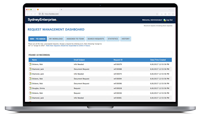AI Policies in Libraries
Lauren Hays
As generative AI continues to develop, libraries of all types will need to decide how they want to use it.
I encourage librarians to start having conversations about generative AI in the workplace. Questions you might want to ask are:
- How is generative AI being used in libraries across the world?
- How is generative AI being used in the fields we support?
- How will generative AI be used in libraries and in the fields we support?
- Where is AI already integrated into our workflow?
- How do we want generative AI integrated into our workflow? Why?
- How can generative AI support the values of librarianship?
- Where does generative AI undermine core principles of librarianship?
From these questions, and likely others that will come up, you may want to develop a policy on generative AI for your library.
When developing policies, my recommendation is to stay as broad and high-level as possible. For example, your workplace policy may be something like, “Employees will use AI in ethical manners as defined by the library/department.”
Then, library administration and departments can work together to define ethical uses. The ethical uses determined today, may need modification in a year, or six months, as the technology further develops and is integrated into more products we use. There may also be new discoveries about how the technology can be used that becomes integral to future goals.
It will be important to stay flexible with any current AI policy. Yet, I personally, believe it is important to have conversations about generative AI in libraries now because it is crucial that we establish guidelines to ensure consistent and ethical utilization of generative AI tools across the information professions, aligning their use with core values and principles.
Lauren Hays
To learn more, please join us for a free webinar, Generative AI: Considerations for Special Librarians, July 10, 2024 at 11 a.m. Pacific, 2 p.m. Eastern. (Can’t make it? Register anyway and we will send you a link to the recording and slides afterwards). Register now .
**Disclaimer: Any in-line promotional text does not imply Lucidea product endorsement by the author of this post.
Never miss another post. Subscribe today!
Similar Posts
End-of-Calendar-Year Reflections for School Librarians
The end of the calendar year offers school librarians a chance to reflect on what’s working, make thoughtful adjustments, and plan for the year ahead.
Library Instruction: Learning Styles Are Out, Evidence-Based Practices Are In
For instructors and educators of all types, it’s vital to realize that evidence-based practices are more effective than catering to the myth of learning styles.
Interview with Susan Walsh:
Dirty Data, AI, and the 2nd Edition of “Between the Spreadsheets”
Author Susan Walsh discusses the new edition of “Between the Spreadsheets,” sharing insights on fixing dirty data, AI’s impact, and her COAT framework.
Interview with the Author:
Dr. Kate McDowell on Storytelling for Libraries
Dr. Kate McDowell shares how data storytelling helps libraries advocate, counter misinformation, and build trust for future generations.





Leave a Comment
Comments are reviewed and must adhere to our comments policy.
0 Comments